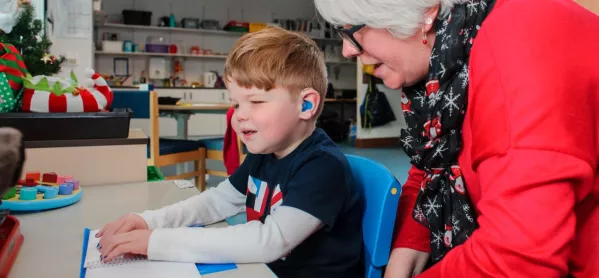Almost half of staff working in special schools fear for their personal safety, and the vast majority say they are unable to maintain social distancing.
That’s according to a survey of 1,223 members of the NEU teaching union who work in special schools.
With special schools set to reopen to certain year groups from Monday, almost all staff said there was “a high risk” of airborne transmission of Covid-19 as a result of pupils spitting, dribbling, biting, coughing and sneezing - yet only one in seven said the personal protective equipment (PPE) they had been provided with was adequate.
Coronavirus: Special schools could ‘draft in’ teachers
Warning: School openings on Monday not safe, say top scientists
Read: Track and trace needed for school openings
Mary Bousted, joint-general secretary of the NEU, said: “This survey is a startling reminder of the risks teachers, heads and special school staff have been facing in recent months. This is a complex sector with acute challenges.
“Current guidance for schools remains inadequate on social distancing and regular testing has not yet reached the workforce in any significant way.
“We have been lobbying about the lack of PPE in schools where staff are at risk and where physical contact is needed to support children and young people.”
The survey among special school staff found:
- Only 14 per cent believed the PPE available to them was adequate, with 39 per cent saying it is not adequate and 44 per cent being unsure - while 7 per cent of respondents had not been offered or provided with any PPE at all.
- 96 per cent said they were unable to maintain social distancing at their school.
- 84 per cent perceived an increased exposure to Covid-19 by working on the school site.
- 96 per cent fear a high risk of airborne transmission as a result of pupils spitting, dribbling, biting, coughing and sneezing.
- 49 per cent do not feel safe in their current working environment.
- 93 per cent said that schools should meet the NEU’s Five Tests before a wider opening.
- 83 per cent agree that the mental health and wellbeing of both pupils and staff should be a priority upon wider opening.
One respondent told the survey: “It is not just risky, it is dangerous. We have had cases already and people are getting ill.”
Another said: “At the moment with only seven students, it is OK but as of 1 June, we could have up to 31 students, which I don’t feel is very safe.”
Another said: “It’s just impossible to know, we’re only safe if nobody is infected, as soon as one person has it, the whole school will too.”
Another said: “Our pupils will either attempt (and manage) to remove PPE or will be absolutely terrified and unable to understand us.”
A Department for Education spokesperson said: “Our first priority remains the safety and wellbeing of vulnerable children, including those with special educational needs and disabilities.
“As schools, colleges and early years settings continue to open their doors to more children and young people, we have asked special schools to also welcome back more students, informed by their risk assessments.
“We recognise that these settings face unique circumstances, which is why we have issued specific guidance on how to best support children and young people with SEND as they return to the classroom.”




